Previous Advanced Fellowship Winners
The Northwestern Cognitive Science Program offers fellowship support for graduate students engaged in interdisciplinary research in cognitive science. These three-quarter fellowships are awarded competitively, based on the quality of research proposed, on the candidate's qualifications, and on the interdisciplinarity of the research.
2022-2023
Deniz Atik
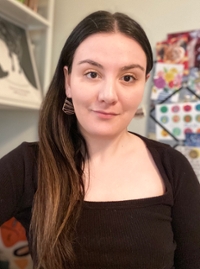
- Sandra Waxman, Cognitive Psychology
- Gregory Ward, Linguistics
A look at the language-cognition interface: the role of Turkish morphosyntax in genericity and factivity judgments
A central issue in explorations of the human mind is the relationship between language and thought. Although it is clear that there are remarkable language universals, it is equally clear that languages vary in their structure and organization. Therefore, questions concerning whether and how cross-linguistic differences shape our conceptual representations remain very much open. Considerable evidence addressing these questions has focused on variability in lexicalization patterns across languages (e.g., language-specific color terms). But the effect of syntactic variation remains understudied. It is possible that language-specific grammatical patterns lead us to establish language-specific conceptual representations. The current project capitalizes on morphosyntactic properties of Turkish and takes a two-pronged approach, focusing on two constructs –genericity and factivity. Existing accounts, which are restricted primarily to evidence in Indo-European languages, focus on semantics. We broaden this approach, asking whether morphosyntactic features of Turkish are instrumental in shaping mental representations. This research rests crucially on both linguistics and cognitive psychology to advance our understanding of the interface between language and cognition.
Anna Cichocki
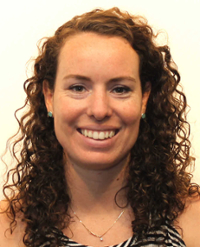
- Robin Nusslock, Clinical Psychology & Brain, Behavior and Cognition
- Greg Miller, Personality, Development and Health Psychology
Trajectories of and Relationship between Cognitive Control and Neuroimmune Signaling
Nervous and immune systems are critical for an animal’s survival. These systems historically have been studied independently and were thought to have minimal interaction. However, recent literature establishes clear bidirectional signaling between these organ systems. Further, cognitive processes can be impacted by immune signaling, such as inflammation. Yet, our knowledge of mechanisms and the biological relevance of neuroimmune signaling is limited. I plan to investigate longitudinal changes in neuroimmune signaling to 1) improve our understanding of neuroimmune trajectories and mechanisms in adolescents and young adults, and 2) explore their relationship to behavioral outcomes of cognitive control. I will leverage two longitudinal samples spanning 10 years of development to explore the trajectories of and relationship between inflammation, activation patterns of cognitive control brain networks, and performance on a computerized cognitive control task. Studying bidirectional neuroimmune signaling will improve our understanding of these cognitive processes and has therapeutic potential.
Ouxun Jiang
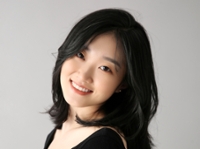
- Steve Franconeri, Cognitive Psychology
- Matthew Kay, Computer Science & Communication Studies
Categorizing Perceptual Limits in Animated Data Visualizations
Animated data visualizations are used across education, journalism, and software user interfaces to show changes in data over time. While engaging to watch, animations also often overwhelm viewers with their complexity. The goal of my research project is to categorize common visual patterns that animated visualizations seek to convey, and to evaluate a typical viewer’s processing capacity for each. I will then produce a guide that visualization authors can use to categorize the types of motion that convey information to their viewers, along with predicted performance limits on each type. Visualization authors should then be better able to respect those processing limits, for example by restricting the amount of dynamic information in their displays, or by highlighting key objects.
Murielle Standley

- Adriana Weisleder, Communication Sciences & Disorders
- Matt Goldrick, Linguistics
Differences in Children’s Word Recognition as a Window into Language Disorders
Spoken word recognition happens incrementally: upon hearing the first sounds of a word we activate multiple lexical contenders, then increasingly inhibit competing lexical items as additional acoustic information comes in. While this process is effortless for most people, lexical competitor inhibition appears to be disrupted in adolescents with Developmental Language Disorder (DLD). The goal of my research is to test the hypothesis that lexical competitor inhibition is an underlying impairment in DLD by examining the relationship between language ability and lexical competitor inhibition in young children. Specifically, I will use an eye-tracking paradigm to investigate 4-year-old children’s efficiency in recognizing a target word among competing lexical items as a function of their language ability. This interdisciplinary project brings together theories and methods from psycholinguistics and communication sciences and disorders to shed light on an issue of clinical relevance and advances our understanding of the emergence of a fundamental component of word recognition. This work may inform approaches for earlier identification of DLD, with potential to improve educational and mental health outcomes.
2021-2022
Ana Diaz Barriga

- Dassia Posner, Theatre
- Marcia Grabowecky, Psychology
"Masters of Perception: Puppeteers as Guides of the Audience’s Embodied and Cognitive Engagement"
Much as magicians are masters of attention, puppeteers are masters of perception. Through their manipulation of the puppet, puppeteers guide the viewers’ cognitive processes: their attention, their embodied engagement, and their changing perception of the puppet as object and living being, prompting the spectators’ simultaneous awareness of fiction and reality. The integration of methods from theatre studies and cognitive science we advance in this project lets us analyze the multi-layered engagement of audiences as they watch puppetry performances. We will analyze spectators’ claimed experiences alongside data obtained through measurements like gaze-tracking and electromyography to examine the interplay of lower- and higher-level processes involved in creating the experience of puppetry spectatorship. This novel collaboration will provide insights into the cognitive complexities that underlie puppetry techniques and add to our understanding of the perception of complex performance events, while deepening the connection between two disciplines — cognitive science and theatre — that have much to contribute to each other.
Evey Huang

- Elizabeth Gerber, McCormick/Communication Studies
- Hatim Rahman, Kellogg School of Management
"Designing a Novel Intelligent System to Support Coaching"
Product management coaching helps product teams design and develop successful products, but it is extremely labor-intensive and time consuming. Intelligent tutoring systems (ITSs) have proven effective at supporting coaching in well-defined learning domains such as algebra and physics. However, in ill-defined domains like design and product development, we do not have precise enough cognitive models required to develop intelligent systems and cannot fully automate coaching with AI because some coaching processes still require human intelligence. The goal of my research is to (1) develop a detailed cognitive model of PM coaching and (2) develop a mixed-initiative, intelligent coaching system to support PM coaching. This interdisciplinary research will contribute to the field of Cognitive Science by modeling the cognition of PMs and creating applications of cognitive science in education that will benefit other types of learning in complex work, and contribute to the field of HCI and AI by testing a new model of mixed-initiative AI system to support coaching ill-defined problems.
Casey Riedmann

- Sid Horton, Psychology
- Chris Kuzawa, Anthropology
"The role of common ground in language evolution: Evidence from a novel signaling paradigm"
How humans evolved their linguistic capacity is of extraordinary interest across many disciplines. One recent empirical approach to this question involves asking pairs of participants to communicate without using language in conventional ways. Sulik and Lupyan (2018) employed a version of this novel signaling paradigm in which “signalers” had to convey target words to a “receiver” by saying a different word. Signalers were largely unsuccessful at this task, which Sulik and Lupyan attributed to incomplete perspective-taking – signalers often failed to appreciate how their signal word would be understood by the receiver. Across three experiments, the current project seeks to expand on this research, testing participants’ ability to incorporate common ground information into emergent communicative settings. Using a novel signaling paradigm, Experiment 1 is designed to test whether signalers make adjustments based on receiver-specific knowledge, while Experiment 2 will test receivers’ adjustments to signaler-specific knowledge. Experiment 3 aims to test receivers’ general use of common ground knowledge in this paradigm. Predicted results could contribute to a more complete story of the emergence of human language.
Gustavo Umbelino

- Matt Easterday, Learning Sciences
- Steven Franconeri, Psychology
"Exploring Citizens’ Cognitive Models of Civic Engagement"
Citizens can have a significant impact on pressing social issues, such as climate change, by being civically engaged, such as by lobbying their city council. Yet, we do not understand how to motivate civic engagement. Cognitive theories of motivation and goal setting predict that citizens will not engage unless they value and believe they can achieve a civic goal. However, citizens might hold beliefs that undermine their motivation to form and accomplish civic goals. In this interdisciplinary research project, we will conduct interviews with Evanston citizens to answer the following research questions: What beliefs do citizens hold that support or undermine civic engagement? and How might we design computer-based technologies to effectively motivate civic engagement? The cognitive models and technologies resulting from this project will further our knowledge of motivation and civic engagement in the fields of cognitive and learning sciences, and human-computer interaction. Ultimately, our findings will allow us to better prepare citizens to address pressing social issues, such as climate change.
2020-2021
Michael Spikes

"Testing the Efficacy of Cognitive Apprenticeship as a Teaching Technique for News Media"
Advisors:
- David Rapp (SESP/Psychology)
- Nathan Walter (Communication Studies)
Arielle Elliott
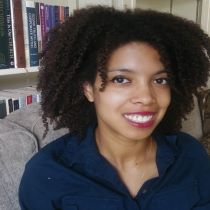
"Perceptions of Typing Fluency in Shared Workspaces Impact Collaborative Editing"
Advisors:
- Sid Horton (Psychology)
- Darren Gergle (Communication Studies)
Jiayin Xing

"Narrative and Visual Attention in Autism Spectrum Disorder: A cross-cultural perspective"
Advisors:
- Molly Losh (Communication Sciences and Disorders)
- Viorica Marian (Communication Sciences and Disorders)
Priyanka Nanayakkara

"Visualizing Privacy-Utility Trade-Offs in Differentially Private Data Releases"
Advisors:
- Jessica Hullman (Computer Science/Medill)
- Abel Kho (Feinberg/IPHAM)
2019-2020
Spencer Carlson

"Understanding the Cognitive Processes of Successful Deliberation"
Advisors:
Brianne Chiappetta

"Musical and Linguistic Syntactic Processing in Agrammatic Aphasia: An ERP Study"
Advisors:
Dan King

"Modeling Verb Metaphoric Extension"
Advisors:
Nikita Salovich

"Why Do People Share Links to Information Without Reading it First"
Advisors:
2018-2019
Kyle Nolla
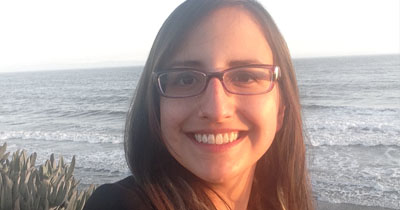
"Describing Skill & Examining Stress Response in Top 100 Esports Players"
Advisors:
Jennifer Eastman
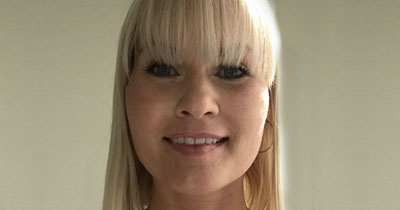
"Neuroanatomical Substrates of Cognitive Change in Older Adults with Cancer"
Advisors:
Kristine Lu

"DeliberatiVis: A socio-technical visualization system for collective deliberative argumentation"
Advisors:
Jason Kim
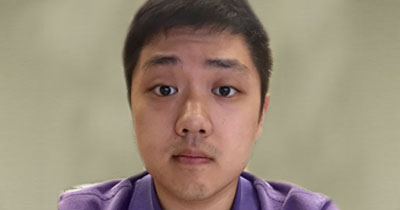
"Cognitive training in sensorimotor control"
Advisors:














